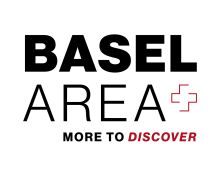
Neurosoft Bioelectronics, a neurotechnology startup developing the next generation of soft, minimally invasive brain interfaces for the treatment of severe neurological disorders, has successfully tested its high-channel-count brain interface in the first two human patients with epilepsy. Further studies will help the company secure the CE mark and prepare for the launch.
Based at Campus Biotech in Geneva, Neurosoft has developed a novel brain interface designed to detect key epilepsy biomarkers - high-frequency oscillations and fast ripples - allowing surgeons to identify epileptic tissue with unprecedented precision during the procedure. With 64 sensing channels embedded in a stretchable material that is 1,000 to 100,000 times softer than conventional electrodes, the device conforms seamlessly to the brain's surface. This softness improves conformability with the brain, while ensuring high-resolution neural recordings, helping neurosurgeons distinguish between healthy and epileptic tissue more accurately, thereby reducing the risk of either excessive or insufficient tissue removal.
A feasibility study was conducted in Houston with four patients, allowing the startup to validate the device's safety and gather design and usability feedback from neurosurgeons to improve its functionality for epilepsy monitoring. The subsequent pivotal study took place at the University Medical Center (UMC) Utrecht, where a team led by Professor Maeike Zijlmans used the device during epilepsy surgery. The goal was to help neurosurgeons differentiate between epileptic tissue and healthy tissue. This study set a world record for the most channels tested in a human with a soft, stretchable brain interface—64 channels, twice the number used in the Houston study.
"We are pushing the frontier of neurotechnology focusing on materials that are intended to interface seamlessly with the brain," said Nicolas Vachicouras, CEO and co-founder of Neurosoft Bioelectronics. "This milestone solidifies our leadership in soft, stretchable brain interfaces and paves the way for broader applications in neuroprosthetics and brain-computer interfaces."
"The Neurosoft flexible grid has been developed according to our clinical needs. The flexibility can be especially useful for recording small epileptic activity, like high frequency oscillations and for checking the surgical borders after initial tissue resection." said Prof. Maeike Zijlmans, epilepsy specialist at UMC Utrecht.
Building on the success of its first two trials, Neurosoft is launching a larger, 12-patient study at UMC Utrecht to further validate the technology for broader clinical use. The goal is to secure European regulatory approval and make the high-resolution technology available to epilepsy surgery centers across Europe. This collaboration with UMC has been made possible through the support of the Wyss Center for Bio and Neuroengineering, KickFund, and business angels as part of a small financing round. Additionally, the study at UMC Utrecht is funded by the EIC Accelerator, supported by SERI and the European Research Council (ERC).
Brain interface monitoring for Tinnitus
While the company progresses its brain interfaces technology in epilepsy, its main product is a fully implantable Brain-Computer Interface (BCI) to treat severe tinnitus, a condition that affects 120M people worldwide. “Our partners successfully concluded a PoC clinical study using fMRI neurofeedback demonstrating our mechanism of action. In 20 patients with severe Tinnitus, we achieved an average tinnitus reduction of 28 pts on the Tinnitus Handicap Index. This is 4x the clinically significant threshold and 130% higher than the current gold standard (cognitive behavioral therapy),” explains Vachicouras. With positive results of an fMRI study for severe tinnitus (EPFL and Wyss Center), further advancements are planned and will be funded by the ongoing funding round.
(Press release/RAN)


 The new Swiss Venture Capital Report was published on 26 January. It analyses 304 financing rounds closed in 2020 and includes further article such as an interview with Michael Hengartner, President of the ETH Board, and a list of Swiss "soonicorns".
The new Swiss Venture Capital Report was published on 26 January. It analyses 304 financing rounds closed in 2020 and includes further article such as an interview with Michael Hengartner, President of the ETH Board, and a list of Swiss "soonicorns". 




















































Please login or sign up to comment.
Commenting guidelines